Tule River Tribe
Porterville, CA
Making a DVD: Deer Skinning and Making Acorn Mush
Our Phase 1 project was a short film depicting two traditional skills of our Yokuts People: making acorn mush and how our people skin deer. We wanted to show how important each is in our culture. We dubbed both sections in the Yowlumni Language. Native filmmaker Daniel Golding conducted interviews with Tribal Elders and documented all of the steps showcased in the film. Making acorn mush is a skill lost for many decades. Few people recall the entire process, and even those who do, no longer make it. We wanted to learn how it was done traditionally, and to gather, store, prepare, cook and feed the people for the first time in many, many years. The film captures the entire process of making the acorn mush, including the traditional cooking place, a sacred area in our community. It was beautiful.
The second portion of the film documents not only the process of skinning a deer, but also the philosophies of three of our hunters: why it’s important to our people and why they pass on these traditions. We were able to include audio of one of our Elders telling the traditional story of the “Deer’s Meat” in Yowlumni and in English. The story reminds us that the deer gave its body to the people, and that we only take what we need.
We were able to make 1,000 copies of the film. The first copies were given to the Tribal Council and the Tule River Elders Council, then to all of the Elders in the community, and finally, to the community in general. A few copies will be given to local schools to accompany Native Curriculum.
The grant has enabled us to create a beautiful cultural resource for our people. After filming ended, the Elder/Advisor to our language program passed away. We are so fortunate to have been able to showcase him in the film. We treasure it even more so, because of this. The film will be shown at our IHS Clinic waiting room, on a loop. It has been shown at TANF events, and is being used by other tribal programs. This is a film which will be used for years to come.
A group from Auberry, California who know the traditional way to pre-cook acorn mush offered to come to Tule and conduct an all-day workshop to make sure we could do it on our own. This partnership was an enormous blessing!
We were beyond pleased with the response from the community, who wanted to either help us gather, or offer their property for us to gather from. One Elder showed up at our office with a large sack of acorns he had gathered by himself for us to use. We were blessed to have at least one person from each family on the reservation attend. It is very rare to have that kind of interest from every family.
The evening before “acorn day,” members of the Tule River Fire Department showed up at the grinding rock site (unbeknownst to anyone) to clean out the grinding holes. On their own time, they did a high-pressure wash of the rocks to make sure everything would be good for us. On “acorn day”, we were joined by members of the Tule River Environmental Department, who (to our amazement) brought very old baskets from the Tribe’s collection. These baskets are kept locked in a display case and never removed. Not only were they brought out, they were allowed to be handled and used for the purpose they were intended. We were even able to use the old mortars and pestles on display, and old soaproot brushes to clear the baskets. Now, when we walk past the mortars in the display, we see the remnants of the acorn prepared that day. It feels good to see that!
We held a film screening at the Tule River Elders Building attended by over 150 people. We gave gifts to participants and then fed the people.
Donations included acorns and deer meat, hours of time sharing stories and family photos. Elders shared their recollections of when mush was a daily sustenance, and not just for special occasions. They spent many evenings talking about what these cultural practices meant to them and how they hoped our people never take for granted what we have.
Acorn prep/cooking site before it was cleaned out. It hadn’t been used for making acorn mush in many decades.
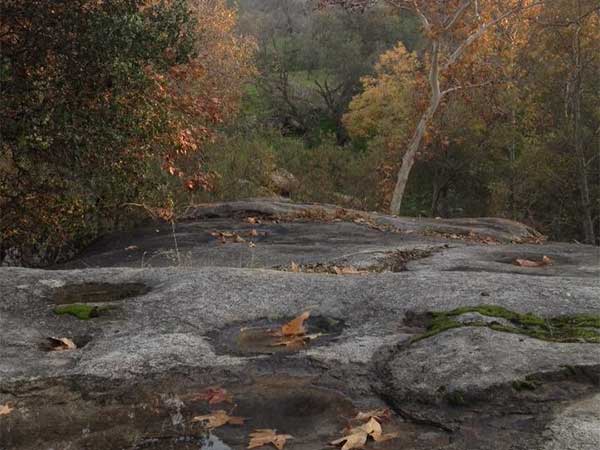
Family members helping to grind the acorn, before leaching.
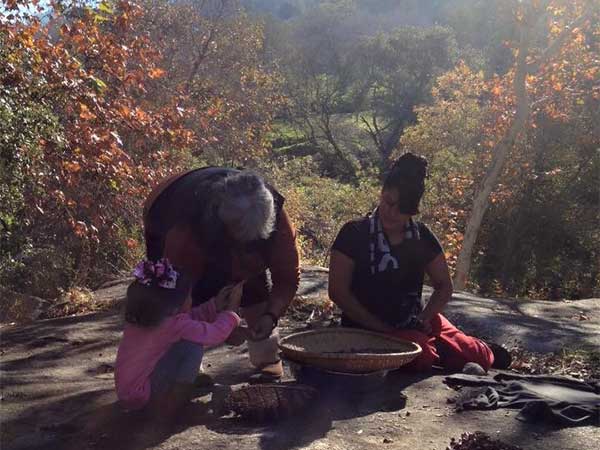
Filming the process.
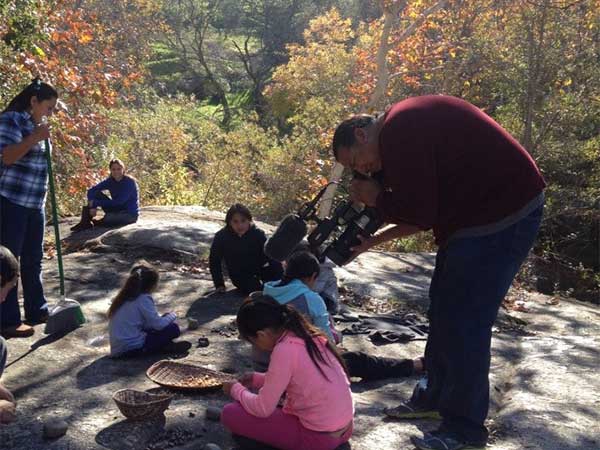
More and more people showed up, all morning.
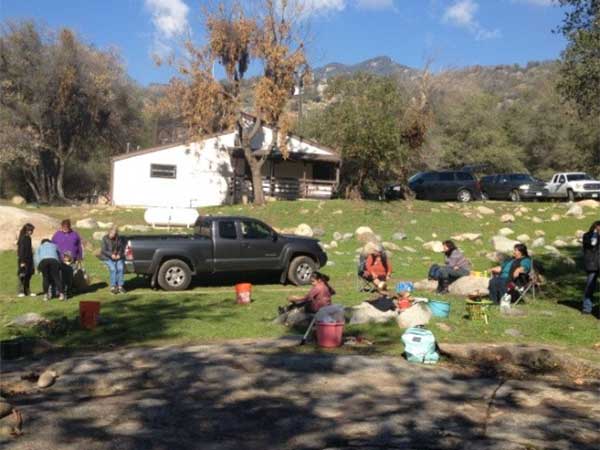
Old mortars were taken out of a display case, to be used.
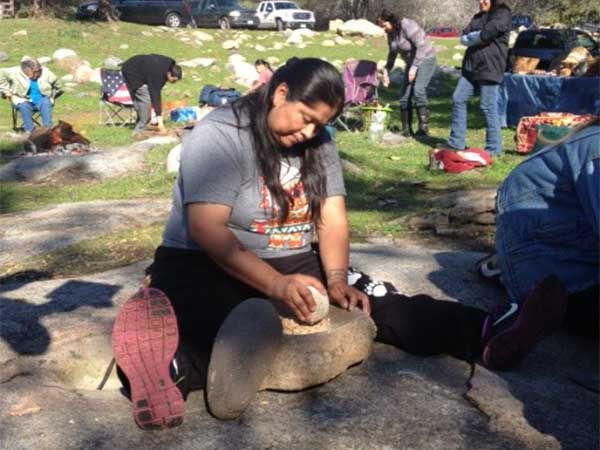
Placing the cooking rocks!
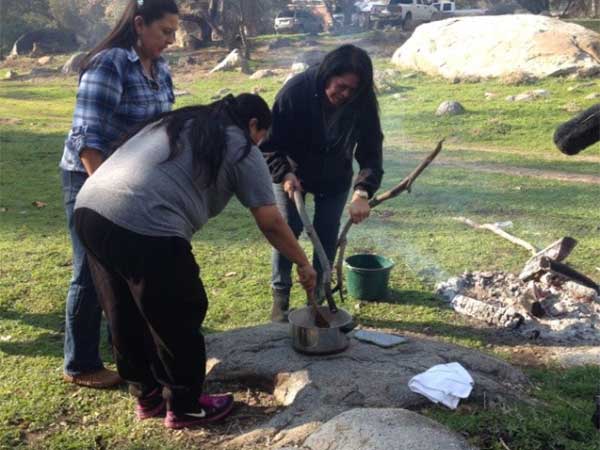
The first pot is cooked! It’s delicious.
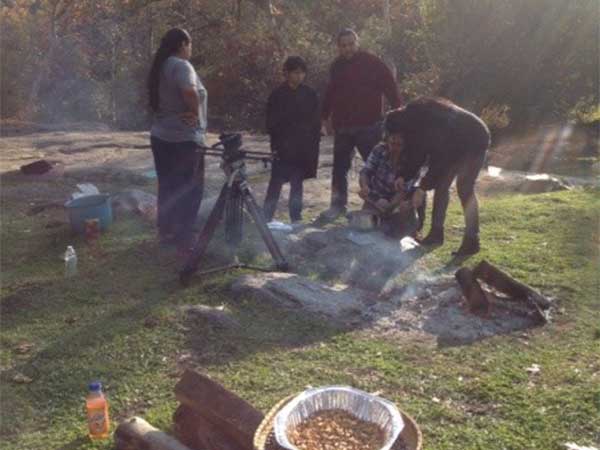
The leaching mound, when we were done. (it’s still there! People have not disturbed it)
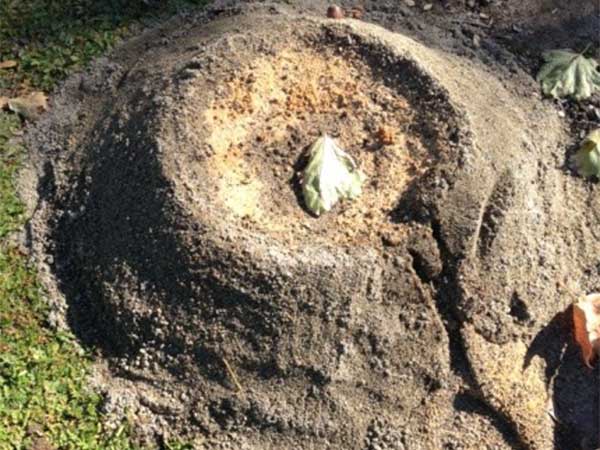
Interviewing one of our deer hunters.
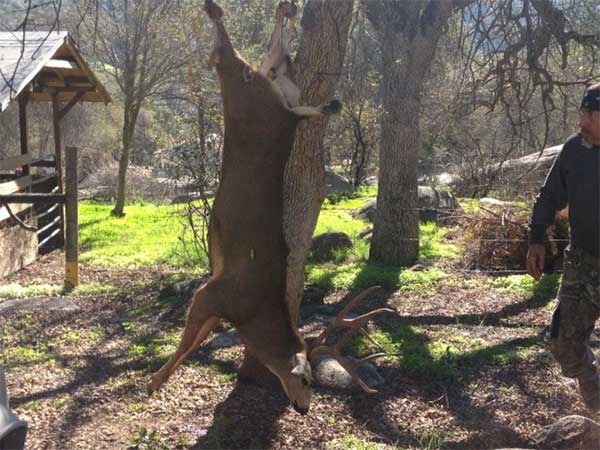
Another Tule buck hunter who shared his knowledge.
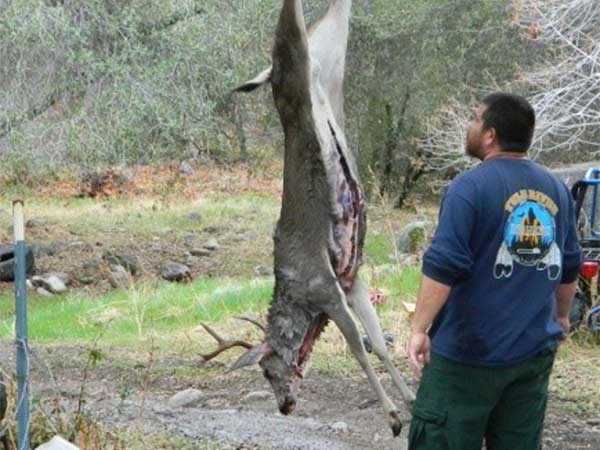
Interviewing Craig Eugene for the film.
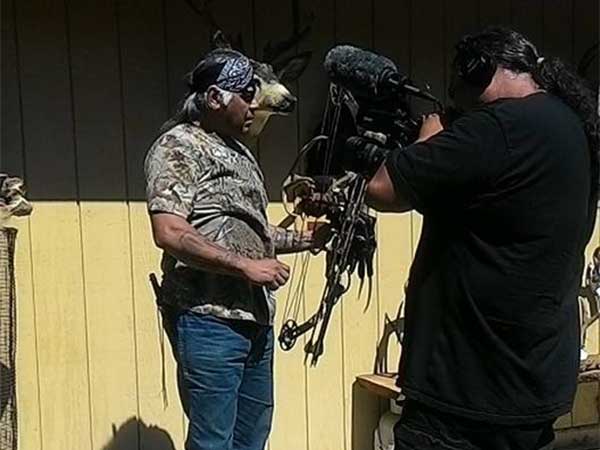
Action shots, for the film!
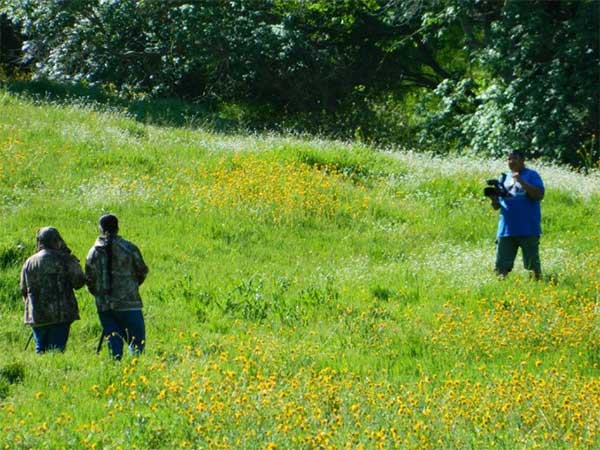
Film screening night.
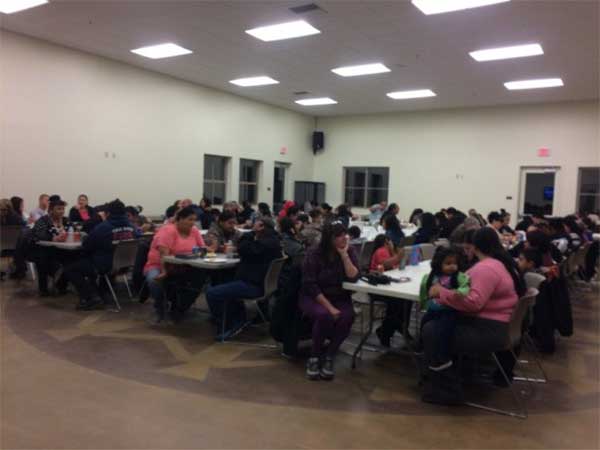
Introducing the film, to the community.
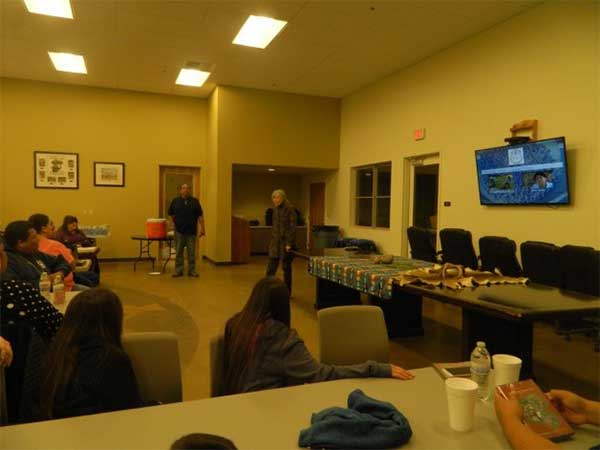
CRF FAQ
CRF PDFs
Contact
Cultural Resource Fund
Peggy Mainor
Executive Director,
The MICA Group
Phone: 505-415-0787


